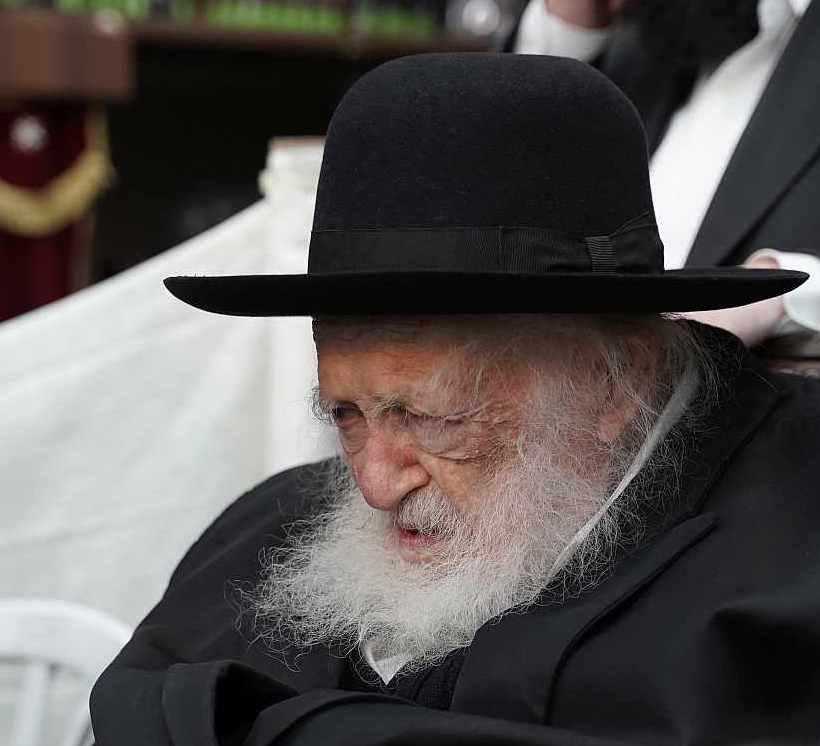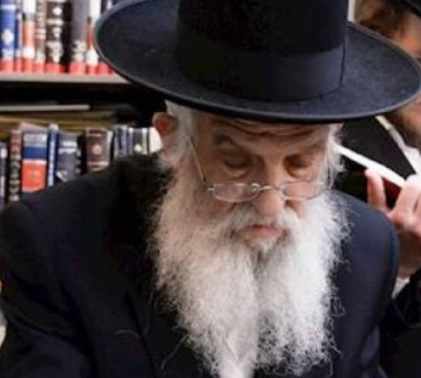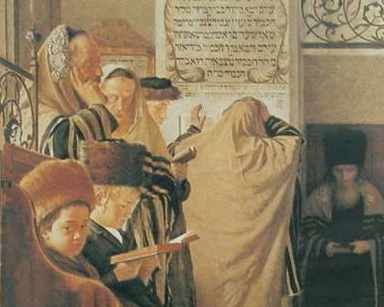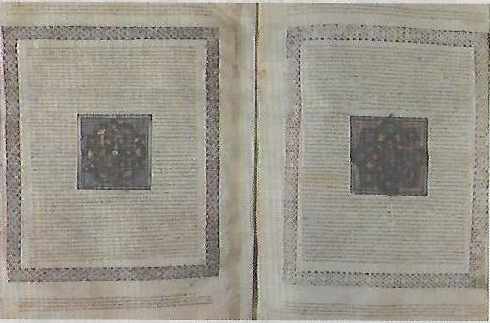  |
|
| |||||
This Google Custom Search looks only in this website. Maran Sar HaTorah Says to Learn Rambam Hilchos Shmittah
The following was a question and its answer that took place recently.
Hod Kvod Maran Sar HaTorah HaGaon Rabbeinu HaGraCh Kanievsky shlita:
Seeing that this past year, 5780, had brought such major troubles, surely in the spiritual sphere where there was so much time wasted from Torah study, primarily from the Corona where the doors to shuls and botei medrash were locked, causing so much damage to our young men, and also materially, where many men, women and children succumbed to the virus. Who can foresee the outcome of this plague? We find ourselves humbled and trembling before the upcoming Day of Judgment.
Our very lives lie in the balance as we ask Rabbeinu: what resolution can we assume upon ourselves? Rabbenu suggest a way we can merit a good and sweet year where we are spared of all the troubles during the upcoming year 5781.
"Eat what you need to live and abstain from any more. Do not believe abundant eating and drinking will help the body grow and increase mental capacity just as a sack fills up from what is placed inside it, for the opposite is true. Light eating enables the stomach to ingest it and to digest it with one's natural metabolism. Then one can grow and become healthy and have a clear mind, but if one eats excessively . . . his mind will become degraded and his pocket will empty and this is the reason for most ailments . . . " reads an excerpt from the Rambam's will.
The Tur begins the halochos of Yom Kippur with a saying by Chazal: "He who eats and drinks on the ninth [of Tishrei] is considered as if he fasted on the ninth and the tenth. And due to HaKodosh Boruch Hu's love for [Am] Yisroel. . . He commanded them to eat and drink first to allow them to fast and so that the fast does not harm them."
And the Shulchan Oruch (Simon 608) reads, "On Erev Yom Kippur one should only eat foods that are easy to digest to avoid being satiated and become haughty when he prays."
The wise have the foresight to adopt proper conduct in eating and drinking. "When you eat right you eat the food and when you do not eat right the food eats you!" The power to fast will come from protein and proper chewing, not from filling your belly.
"A year which is meager in its beginning becomes rich towards the end." Rashi comments on this saying of Chazal: "Where Jews see themselves as poor on Rosh Hashonoh, regarding pleading and prayer..." When one regards himself as unworthy, this in itself enables him to pass the Day of Judgment [safely]. Chazal also say, "The more one sees himself as unworthy and lowly on Rosh Hashonoh, the better.
We must try to understand why the attitude of self effacement is so beneficial in experiencing Rosh Hashonoh. Don't we know already that the judgment is an accounting of one's deeds? What significance, then, can the approach of poverty [of merit] affect the very judgment of Rosh Hashonoh?
A collection of short insights into the themes Tefillah and Tzedaka as relevant to Rosh Hashanah and Yom Kippur
Tefillah
R' Chaim Volozhiner told of his great master, the Gaon of Vilna:
"When we were once discussing the value of prayer, he said to me: `I was once shown the importance of prayer from Heaven. I had labored very hard to understand a certain passage in the Zohar but it eluded me. Then, on Rosh Chodesh, while standing at the morning Shemoneh esrei, the passage suddenly recurred to me and I was able to understand it seven different ways! What should I have done?'
"I said to him, `Could you not have paused and organized them in your mind? Is that also considered an interruption?'
"He replied, `That is what I did. I paused a moment and committed them to memory; then I carried on with my prayers. When I finished praying, I wanted to recall the explanations, but they had escaped my mind; I had forgotten them entirely. It grieved me so much that it took me half an hour to compose my emotions to the point that I could continue with the Hallel. Later, when I was standing at musaf, the seven explanations struck me again. This time, I banished them from my mind and continued to concentrate upon the prayers. When I finished, I was able to reconstruct them all; they were preserved in my memory in their original form and I found them to be as sweet and palatable as honey'."
(R' Chaim Volozhin's introduction to his commentary on the Gaon's commentary on Safra DeTzniyusa)
...
The Jerusalem regional court ruled this week that the Keter Damascus, the Damascus Crown, i.e. the nine works of Tanach inscribed on parchment dating back hundreds of years which were smuggled into Israel from Syria by the Mossad, shall remain in the National Library rather than being transferred to the possession of HaRav Avraham Hamra, the last of Syrian rabbanim, who assisted in their being brought to Israel.
From Our Archives
". . . To Envision the Punishments [of] Gehennom"
by HaRav Nosson Wachtfoge, ztvk'l, prepared by a student
The disaster that took place in the U.S. two year ago at this time came to us vividly in photos and films. The differences between this and other acts of murder were many, but one of the lesser noted aspects was the fact that everything was captured on a live broadcast and transmitted to the four corners of the earth. All the terrible disasters that take place are covered fully in the media, and the horrifying details are laid out before us.
Chazal taught us that if something is brought to our attention and makes a deep impression upon us, this is for a definite reason. It is meant to teach us something.
The sight of any disaster has the power to suppress and dull a person's innate compassion, and this is surely not the purpose of our viewing it. What then is the message we must take to heart? Why were we privy to those horrible scenes? What did it mean in its timing -- the tail end of year 5761?
Rebbe Nosson Neta Shapira zt'l, the author of Megaleh Amukos
by S. Avrohom
Cracow, in southern Poland southwest of Warsaw, was a leading Torah city in learning and observance for many generations. It was the home of Torah giants who were pillars of Torah and halochoh. Among these was the gaon, kodosh and mekubol HaRav Nosson Neta Shapira zt'l, who was world famous as the author of the Megaleh Amukos.
R' Nosson Neta was blessed with rare talents. His diligence and labor in Torah study were limitless, and his phenomenal memory astounded everyone.
When he was twenty years old his father-in-law, the gvir R' Moshe Eberless, introduced him to a Polish noble who wanted for himself to see the young illui's recall of what he heard. The aristocrat read him an entire book written in French, a language totally unknown to R' Nosson Neta. In the middle of the reading, which took a very long time, R' Nosson Neta rested his head on his arm. The noble thought R' Nosson Neta had fallen asleep, and he asked him in Polish: "Have you fallen asleep?" Rabbeinu nodded his head from side to side to signal that he had not. The noble continued reading the book until its very end.
Then he asked R' Nosson Neta to retell by heart the whole book. This apparently illogical demand didn't bother Rabbeinu at all. He repeated the whole book, word for word, and he even repeated the question, "Have you fallen asleep?" in exactly the place where the noble originally asked him that question.
At the age of thirty, Rabbenu became rosh yeshiva of the Cracow Yeshiva, one of the most famed yeshivos of the day. This yeshiva was founded by HaRav Yaakov Pollack, the father of the pilpul method of Torah study, which had proven its tremendous usefulness in better understanding the Torah.
|
|||||




.jpg)




